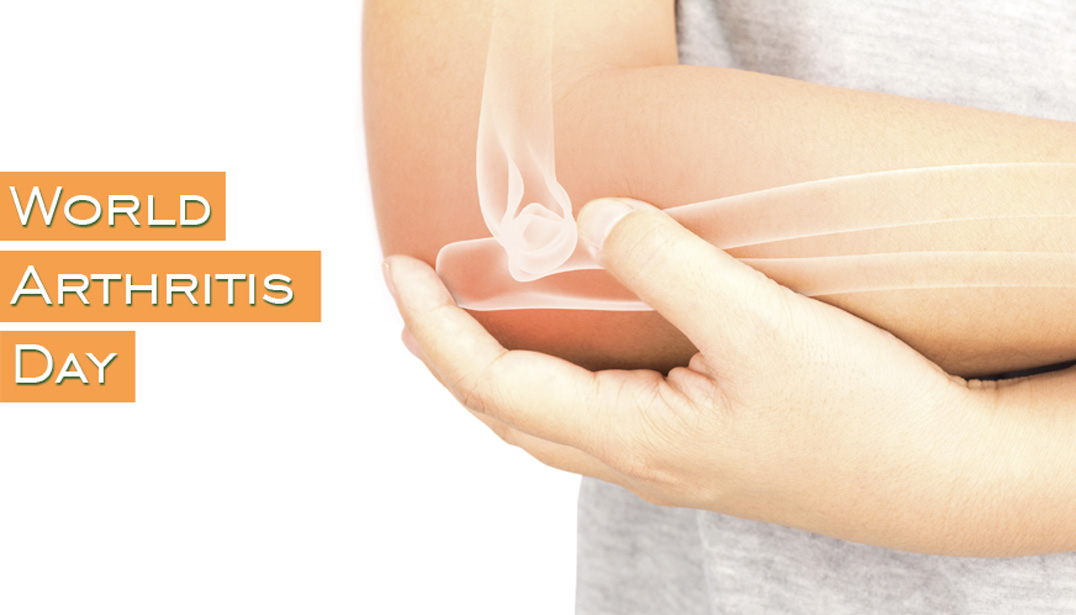What is Arthritis?
Arthritis is an inflammation of the joints which can affect one joint or multiple joints. There are more than 100 different types of arthritis. People of all age groups, sexes and races can suffer from arthritis. However it is commonly seen in adults over the age of 65. It is more common in women than men and obesity also plays a great role.
What causes arthritis?
Your cartilage is a firm but flexible connective tissue in your joints. It protects the joints by absorbing the pressure and shock created when you move and put stress on them. A reduction in the normal amount of this cartilage tissue cause some forms of arthritis.
Different types of arthritis:
- Degenerative Arthritis
Osteoarthritis is the most common type of arthritis. When the cartilage – the slick, cushioning surface on the ends of bones wears away, bone rubs against bone, causing pain, swelling and stiffness. Over time, the joints may lose their strength and the pain can become chronic. - Inflammatory Arthritis
A healthy immune system protects you and acts against infections. But the immune system can at times go awry, mistakenly attacking the joints with uncontrolled inflammation and potentially causing joint erosion. Rheumatoid arthritis and psoriatic arthritis are examples of inflammatory arthritis. Researchers believe that a combination of genetics and environmental factors can trigger autoimmunity. - Infectious Arthritis
A bacterium, virus or fungus can enter the joint and trigger inflammation. Examples of organisms that can infect joints are salmonella and shigel. Timely treatment with antibiotics may clear the joint infection, but sometimes the arthritis becomes chronic. - Metabolic Arthritis
Some people have high levels of uric acid because they naturally produce more than needed or the body can’t get rid of the uric acid quickly enough. In some people the uric acid builds up and forms needle-like crystals in the joint, resulting in sudden spikes of extreme joint pain, or a gout attack. This can become chronic, causing ongoing pain and disability.
Some symptoms of Arthritis
Common arthritis joint symptoms include swelling, pain, stiffness and decreased range of motion. Symptoms can be mild, moderate or severe. They may stay about the same for years or may also get worse over time. Severe arthritis can result in chronic pain, inability to do daily activities and make it difficult to walk or climb stairs. It can cause permanent joint changes.
Methods of diagnosis
Your doctor performs a physical check for fluid around the joints, warm or red joints, and limited range of motion in the joints. To determine the type of arthritis extracting and analyzing inflammation levels in your blood and joint fluids is needed. Doctors commonly use imaging scans such as X-ray, MRI, and CT scans to produce an image of your bones and cartilage.
Treatment of Arthritis
The main goal of treatment is to reduce the amount of pain the patient is experiencing and to prevent additional damage to the joints. Your doctor may prescribe you a combination of treatment methods to achieve the best results.
Surgery
One of the most popular and sought after treatments is surgery to replace your joint with an artificial joints. It is performed to replace hip and knee joints.
If your arthritis is severe in your fingers or wrists, your doctor may perform a joint fusion. In this procedure, the ends of your bones are locked together until they heal and become one.
Physical Therapy
Physical therapy involves exercises that help strengthen the muscles around the affected joint and plays a core role in the treatment of arthritis.
Some suggested lifestyle changes for arthritis:
- Regular exercise will keep your joints flexible.
- Swimming is a great form of exercise as it doesn’t put pressure on your joints like running and walking.
- Avoid unnecessary overexertion and take rest when needed.
- Weight loss and maintaining a healthy weight reduce the risk of developing osteoarthritis, and can reduce symptoms if you already have it.
- Eating foods with lots of antioxidants can help reduce inflammation.
While it’s ideal to initiate treatment as early as possible, aggressive treatment throughout the course of the disease is essential, suggest experts. Are you or a dear one suffering from arthritis? Start treatment before it is too late. Consult our team of experts at Kokilaben Dhirubhai Ambani Hospitals’s Centre for Bone and Joint. For more details, visit our below website:
https://www.kokilabenhospital.com/departments/centresofexcellence/centrefor_boneandjoint.html


